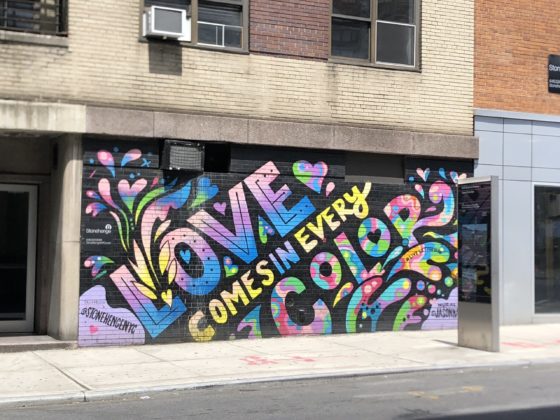
Exposing yourself to new ideas is critical, and if you only read one article this month, I highly recommend this, powerful, important piece by Nikole Hannah-Jones in the New York Times Magazine. This long article is a short way to learn about the injustices Black people have faced in the U.S. for the past 400 years. Hannah-Jones clearly explains why reparations are the right thing to do as one part of the remedy in a society where the oppression of Black people has prevented them from accumulating wealth, a critical factor that has held them back:
Wealth, not income, is the means to security in America. Wealth — assets and investments minus debt — is what enables you to buy homes in safer neighborhoods with better amenities and better-funded schools. It is what enables you to send your children to college without saddling them with tens of thousands of dollars of debt and what provides you money to put a down payment on a house. It is what prevents family emergencies or unexpected job losses from turning into catastrophes that leave you homeless and destitute. It is what ensures what every parent wants — that your children will have fewer struggles than you did. Wealth is security and peace of mind. It’s not incidental that wealthier people are healthier and live longer. Wealth is, as a recent Yale study states, “the most consequential index of economic well-being” for most Americans. But wealth is not something people create solely by themselves; it is accumulated across generations.
My earliest memory of being exposed to racism was when my parents told me about the sleazy, racist behavior of some realtors.
I grew up in Teaneck, New Jersey, a suburb of New York City which holds the distinction of being the first white-majority district in the nation to implement a voluntary school integration program, busing students beginning in 1965.
I moved into Teaneck with my parents and younger brother in 1966, a year before I entered kindergarten.
When I was in middle school, my parents told me about something that had happened during our early years in Teaneck. During that time, they received multiple phone calls from realtors with the racist “warning” that a Black family was moving onto our street. The realtors said they would be happy to sell our house (and make a commission for themselves) so we could get out before that happened.
Wikipedia describes that unethical, racist behavior, known as “Blockbusting” as: a business process of U.S. real estate agents and building developers to convince white property owners to sell their house at low prices, which they did by promoting fear in those house owners that racial minorities would soon be moving into the neighborhood. The agents then made yet another commission by selling those same houses at much higher prices to Black families—one of many factors that suppressed wealth accumulation by Black Americans.
As described in the late 1940s in The Negro in America, by Arnold Rose, blockbusting created a vicious circle, in which race, prejudice, economic interest, and residential segregation mutually reinforced one another.
Black families did move onto our street, including the McIntoshes, directly across the street from us. Mrs. McIntosh passed away in 2013 and when my parents moved out of their house in 2018, Mr. McIntosh was still be living across the street.
Since the George Floyd killing, and the ensuing protests about police reform and systemic racism, many people have recommended books and other media to help people become exposed to the issues at hand—and, even better, if at all possible, to become anti-racist.
Movies can help to illustrate these issues and to create more empathy in viewers. It’s hard to not feel sickened watching the racism in these very recent movies, all based on true stories:
- Just Mercy, about the injustices experienced by Walter McMillan, following his wrongful conviction for murder.
- Hidden Figures, about the horrendous treatment of the heroic, brilliant, Black female mathematicians who worked at NASA during the U.S./Soviet space race.
- The Best of Enemies, about the amazing work of civil rights activist Ann Atwater, including the way she turned around the views of a KKK leader.
Movies like these expose us to stories, people, and experiences often unknown to most White people in our highly segregated country.
I strongly recommend you watch Ava DuVernay’s documentary 13th, titled after the 13th amendment to the U.S. Constitution (which was adopted in 1865 to abolish slavery throughout the U.S., with the exception of involuntary servitude as a punishment for conviction of a crime.) The film explores the intersection of race, justice, and mass incarceration in the United States and, at the time of this writing, is available to watch free of charge on YouTube.
Even better than watching movies, is spending time with people, as illustrated in this very short video.
The experience described in the video happened in an incredibly profound way to Derek Black.
Derek Black’s father, Don, created Stormfront, the Internet’s first and largest white nationalist site. David Duke, one of the country’s most infamous racial zealots, was Derek’s godfather. Some white nationalists had begun calling Derek “the heir.” The book Rising Out of Hatred: The Awakening of a Former White Nationalist is an easy read which tells the story of Derek’s turnaround during college when he got to know people he had been taught to hate – a remarkable story about the importance of exposure.
Last, I suggest you to listen to Nikole Hannah-Jones discussing her reparations article on Fresh Air. Among other things, she explains why we all believe in reparations, even if we don’t realize it. For example, if a drunk driver totaled your car, you would hold that driver responsible for making up for that wrong. You would expect that person to repair your car—that is to say, you would expect reparations. (Reparations and repair both come from the Latin word meaning “to restore.”)
Stay safe and well,
David
